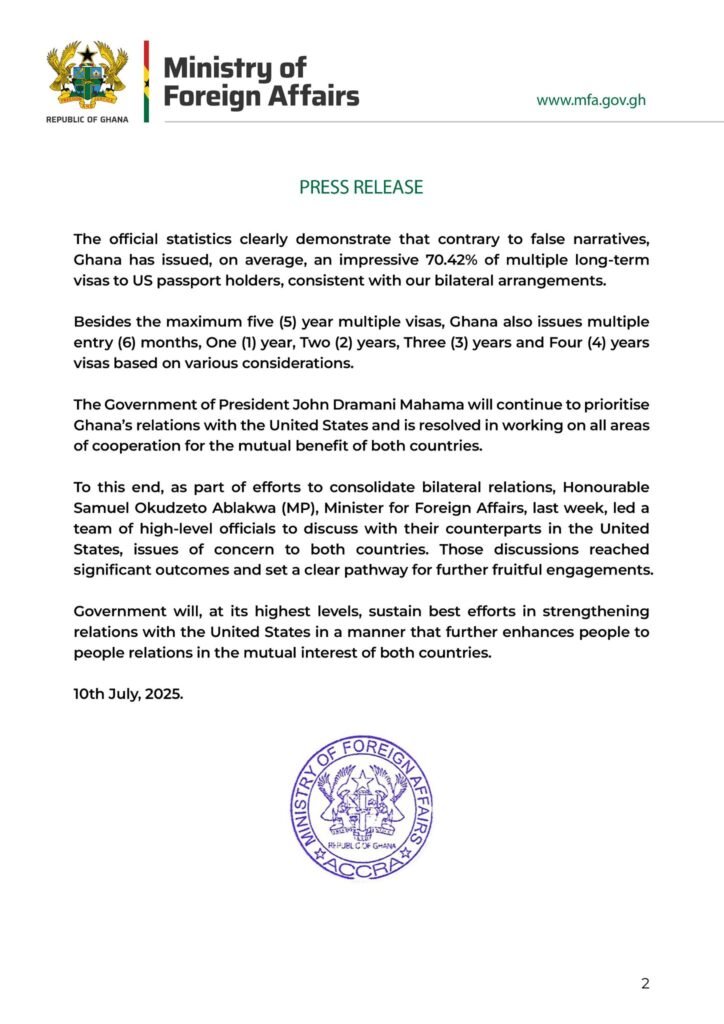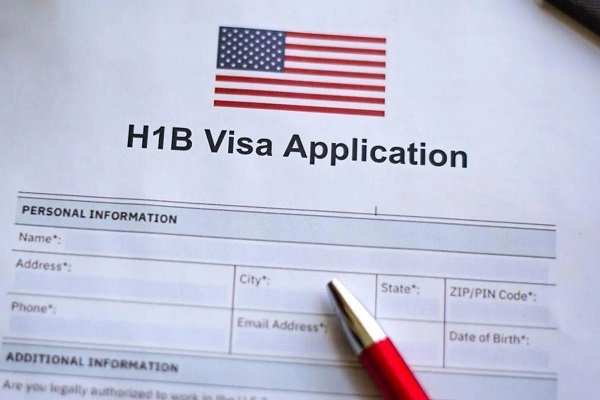The Government of Ghana, through the Ministry of Foreign Affairs, has formally responded to the recent revision of the United States visa reciprocity schedule, which significantly alters the terms for Ghanaian travellers.
The U.S. has announced that B1/B2 visa holders from Ghana will now receive three-month single-entry visas, replacing the previous five-year multiple-entry permits.
In a statement released on Thursday, the Ministry expressed concern over the implications of the decision on thousands of Ghanaians who travel to the United States for professional, business, educational, medical, touristic, and family-related reasons.
“The Ministry acknowledges the legitimate concerns of Ghanaian travellers… and expresses its firm solidarity with all those inconvenienced,” the statement read.
While recognizing the sovereign right of the U.S. to determine its visa policies, Ghana highlighted the deviation from longstanding reciprocal arrangements.
The Ministry noted that the U.S.’s new policy represents a substantial departure from the visa regime Ghana maintains for American passport holders.
According to the Ministry of Foreign Affairs, data from Ghana’s missions in Washington D.C. and New York between January 2025 and the present indicate that out of 40,648 visas issued to U.S. citizens, 28,626, approximately 70.42%, were multiple-entry visas. U.S. passport holders are eligible for visas of up to five years, and many receive them upon request.
The statement also indicated that Ghana also offers one to four-year multiple-entry visas based on the applicant’s need and passport validity.
“These statistics clearly demonstrate that contrary to false narratives, Ghana continues to uphold its end of the reciprocal agreement,” the Ministry.

As part of efforts to address the issue diplomatically, Minister for Foreign Affairs, Hon. Samuel Okudzeto Ablakwa, led a high-level delegation to the United States last week. Discussions with American counterparts reportedly achieved “significant outcomes” and set a framework for continued dialogue.

The statement emphasized that the Government of President John Dramani Mahama remains committed to strengthening bilateral relations and fostering people-to-people ties.
“We hope for an early resolution of the concerns that have led to the revision of the schedule… including by ensuring that the conduct of applicants aligns with the visa application procedures and requirements of the United States,” it noted.
According to the U.S. Department of State – Bureau of Consular Affairs, the revised policy affects most non-immigrant visa classifications.
While A-class visas for diplomats will remain valid for up to five years with multiple entries, the B1/B2 visa category for business and tourism is now limited to three months with a single entry. Fiancé(e) and spousal visa classifications such as K1, K2, K3, and K4 remain unchanged in terms of entry and duration.
The U.S. cited issues related to visa overstays as the primary reason for the policy revision.


